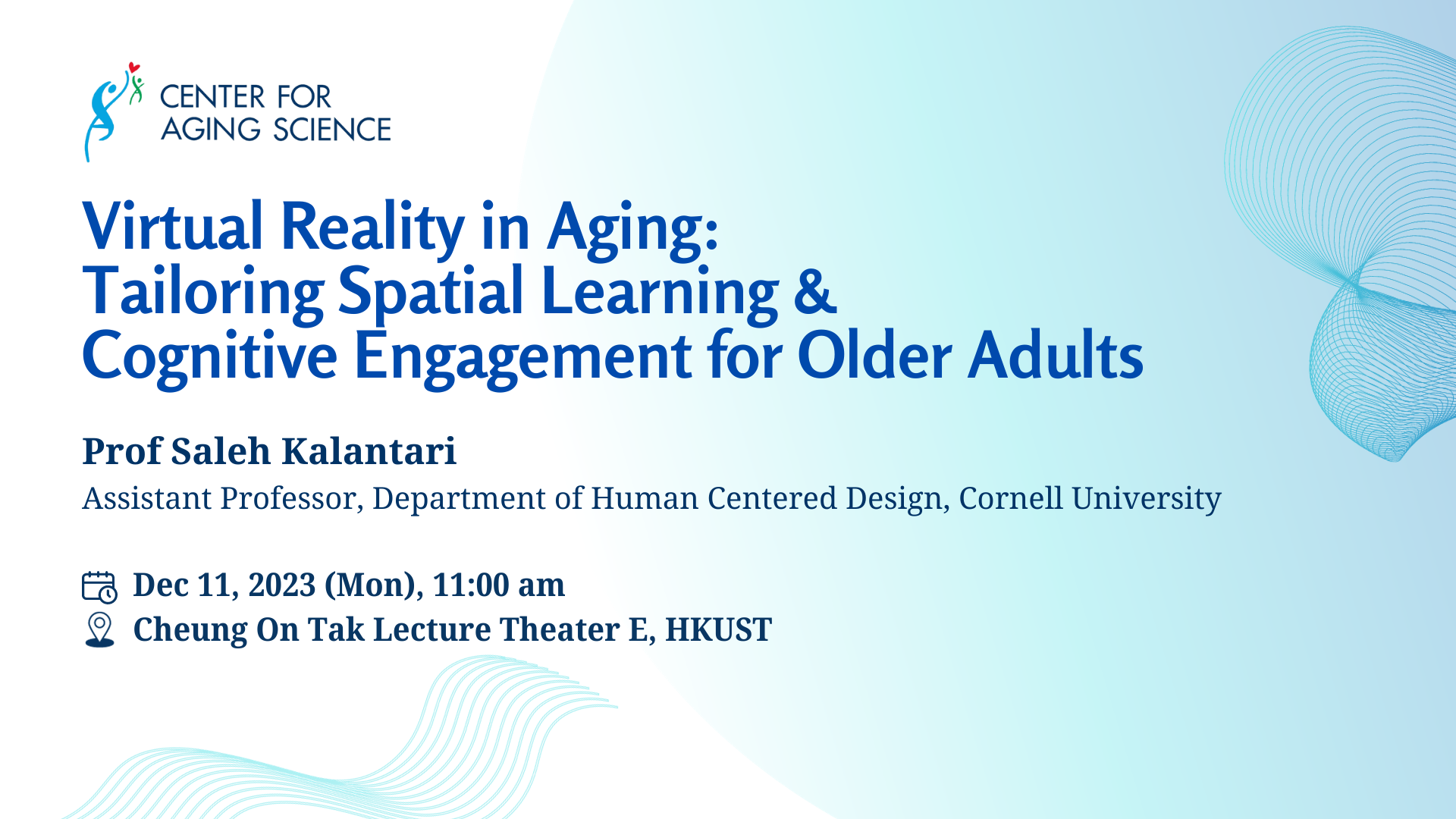Virtual Reality in Aging: Tailoring Spatial Learning & Cognitive Enagement for Older Adults
11 Dec 2023 (Mon)
11:00am - 12:00pm
Cheung On Tak Lecture Theater E, HKUST
Prof. Saleh Kalantari (Cornell University)
Abstract:
Virtual Reality (VR) is beginning to emerge as a pivotal tool for augmenting spatial learning and cognitive engagement among older adults, though the specific applications and concerns related to this population are still nascent topics in VR discourse. In this presentation Dr. Kalantari will address VR ecosystems crafted to resonate with the unique requirements and proficiencies of the senior demographic. Delving deep into human–environment interactions, the talk will elucidate the behavioral divergences that have been seen in virtual versus physical realms, drawing insights from contemporary empirical investigations on human navigation. It will also discuss the specific needs of older adults compared to younger generations when it comes to VR technologies. Highlighting past and current projects at the Design + Augmented Intelligence Lab at Cornell, attendees will learn about the potential of diverse senior-centric VR domains, ranging from tranquil virtual gardens influencing mood and cognition to platforms that facilitate social and collaborative activities among seniors who come together from dispersed geographical regions. The talk will also cover recent comparative analyses of VR-based spatial learning skill enhancement training in relation to traditional video mediums. The results of this research show the promise of VR as a potent instrument to improve the quality of life, engagement, and cognitive skills maintenance of our aging populace.
About the Speaker:
Saleh Kalantari, Ph.D., is an assistant professor in Cornell University’s Department of Human Centered Design. He is the director of the Design and Augmented Intelligence Lab (DAIL) at Cornell, where his research group investigates human–technology partnerships in the design process and the resulting opportunities for innovation and creativity. Dr. Kalantari’s work pushes the boundaries of empirically grounded design, focusing on developing tools and techniques that enhance our understanding of the impact of design, whether virtual or built, on human behavior. He particularly emphasizes tools that can be integrated into design workflows rather than those used post-hoc. A significant portion of his research is directed towards understanding human-environment interactions during spatial navigation in large facilities such as hospitals. Dr. Kalantari’s contributions in this area include a novel VR-testing platform for evaluating wayfinding design, a cognitive agent simulation tool for wayfinding design optimization, and VR games aimed at improving users’ spatial learning. His research endeavors have been supported by the NIH (R01 as a PI), the NSF (Human-Centered Computing as a PI), the Foundation for Health Environment Research, and the National Institute on Disability, Independent Living, and Rehabilitation Research (NIDILRR).
